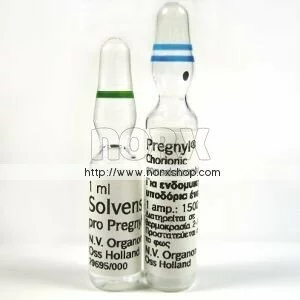|
||||
|
The hormone human chorionic gonadotropin (known as hCG) is produced during pregnancy. It is made by cells that form the placenta, which nourishes the egg after it has been fertilized and becomes attached to the uterine wall. Normally, hCG production increases exponentially, starting a few days after the embryo implants in the wall of the uterus. It can be measured in the blood as early as a few days before your period is due and can often be detected in urine with a regular home pregnancy test by the time you miss a period. HCG blood levels vary widely between different women and in different pregnancies for the same woman. In about 85 percent of pregnancies hCG levels will double every two to three days for the first 8 - 11 weeks of pregnancy and then will decline, remaining at lower levels for the rest of the pregnancy. |
||||
|

